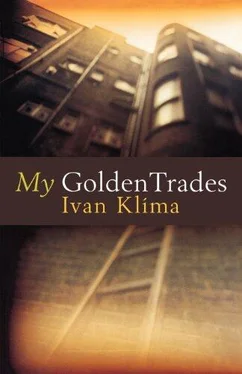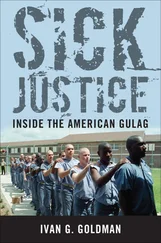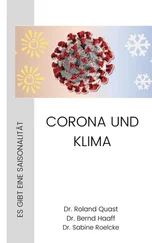Ivan Klima - My Golden Trades
Здесь есть возможность читать онлайн «Ivan Klima - My Golden Trades» весь текст электронной книги совершенно бесплатно (целиком полную версию без сокращений). В некоторых случаях можно слушать аудио, скачать через торрент в формате fb2 и присутствует краткое содержание. Год выпуска: 1998, Издательство: Granta UK, Жанр: Современная проза, на английском языке. Описание произведения, (предисловие) а так же отзывы посетителей доступны на портале библиотеки ЛибКат.
- Название:My Golden Trades
- Автор:
- Издательство:Granta UK
- Жанр:
- Год:1998
- ISBN:нет данных
- Рейтинг книги:4 / 5. Голосов: 1
-
Избранное:Добавить в избранное
- Отзывы:
-
Ваша оценка:
- 80
- 1
- 2
- 3
- 4
- 5
My Golden Trades: краткое содержание, описание и аннотация
Предлагаем к чтению аннотацию, описание, краткое содержание или предисловие (зависит от того, что написал сам автор книги «My Golden Trades»). Если вы не нашли необходимую информацию о книге — напишите в комментариях, мы постараемся отыскать её.
My Golden Trades — читать онлайн бесплатно полную книгу (весь текст) целиком
Ниже представлен текст книги, разбитый по страницам. Система сохранения места последней прочитанной страницы, позволяет с удобством читать онлайн бесплатно книгу «My Golden Trades», без необходимости каждый раз заново искать на чём Вы остановились. Поставьте закладку, и сможете в любой момент перейти на страницу, на которой закончили чтение.
Интервал:
Закладка:
What could I do? I turned my eyes to the heavens, hoping they were not empty, and whispered a prayer.
I went back to the cottage, put the paints away, and gazed for a while at my sketch. Then I crumpled it and threw it into the waste basket. In the distance, I could hear the siren of an ambulance, or perhaps a police car.
I had not done anything wrong, but I could not get rid of the idea of the utter futility of my painting. If only I had known that the girl had decided to give up. Yet what could I have done? One tries so often to speak, but is not heard. I would like to have found or merely repeated a word of hope: 'Be not over much wicked, neither be thou foolish;
why shoulds't thou die before thy time?'
The monsters my cousin had left grinned down at me from the walls, and I couldn't stay here any longer.
Outside, there were several women standing around the fence of my smiling neighbour. 'Have you heard?' they called to me.
Imprudently, from a childish desire to display my masculine superiority, I revealed that I had even seen the body lying on the tracks. Moreover, I said, I was probably the last person to see the poor girl alive.
They immediately wanted to know everything I'd seen and what she looked like, because so far, they said, no one had any idea who the dead girl was. I disappointed them. I knew nothing except that the girl had reminded me of lots of other girls; she looked so ordinary: nothing about her had struck me.
Did I think she was from the village or one of the cottage colonies nearby? Or was she a complete stranger?
I didn't know, I said, but I was sure I had never seen her before. Yet as soon as I said that out loud, I realized I wasn't sure even of that. Since I wasn't certain what she looked like, how could I be certain I'd never seen her?
They were disappointed, but even so they tried to persuade me that it was my duty to go to the police station and declare myself as a witness.
I thanked them for the advice, but I knew that, in any case, they would not allow me to bury her.
When I got home, my wife greeted me with a great sense of relief. She said that all afternoon she'd had ugly premonitions. When she had come home from work that afternoon and there was an ambulance in the street, she was terrified that something had happened to me. But it
had been for the man who had recently finished building the house in our street.
'What happened to him?'
A heart attack, she said. And the poor man had worked so hard. 'And what did you do?' she wanted to know. 'Did you go mushroom hunting?'
Suddenly, what I'd experienced seemed so improbable and unreal that I began to doubt it had actually happened. But I certainly did not want to talk about it. My wife would not have been able to sleep.
I said that the mushrooms weren't growing, and that I'd painted a picture but it hadn't worked out.
That evening, when my wife was already in bed, the doorbell rang.
It was an older woman in a headscarf — obviously a woman from the country. Embarrassed that she was disturbing me at such a late hour, she tried to persuade me that I knew her, that we'd met each other in the shop in M., and she'd seen me several times with a sketch-pad — once I'd even done a picture of her cottage.
I could recall none of this, but I nodded and invited her in.
She refused to sit down. She didn't want to take up any of my time, but they had told her that I was the one who had last seen the — she groped for the right expression — the one the train ran over, and so she had to talk to me. Every Friday her daughter came home from school for the weekend. Today she hadn't come back, and she wasn't at the school.
I tried to reassure her that her daughter would certainly turn up. And in any case, I couldn't help her. I had scarcely laid eyes on the girl in question.
That didn't matter; she'd show me a photograph. I'd certainly recognize her if I'd seen her. She began to rummage in her handbag, searching with increasing desperation among the things she kept there, but she couldn't find the photograph. Obviously she'd been so upset she'd left it at home.
I told her it was better that way, because the photograph would only reinforce an image I couldn't be sure of anyway.
But she had to know the truth. Sometimes the girl comes home, sometimes she stays with friends. Sometimes she even disappears for a whole week. She's a bit of a— nomad.
'There now, you see? That probably explains it,' I reassured her.
'What should I do, then?'
'Well, if you think it is your daughter, perhaps you should ask to see the body.'
She'd already been there and looked at the body; I couldn't imagine how hideous it was. No one could recognize her. No one! 'For a while I thought it was her— her poor little body, at least, but then I thought the legs were too long. If you could see how mangled she was.' The woman began to cry.
I said I thought the girl couldn't have fallen under the train by accident. Did she think her daughter had any reason to do something like that?
'Who knows?' she sobbed. 'You know what they're like! They don't take life seriously. They probably don't even know why they're alive!' She began searching in her handbag again. 'Do you think you could go back with me? I have a car.'
'It wouldn't make any sense. Even if you show me a photograph, I still won't be sure. But when they showed you the body, you must have seen how she was dressed. Did your daughter ever wear a denim skirt, for instance?'
'They all dress alike, don't they. And if you could have seen the dress, it was soaked in blood. The blouse didn't look like one of hers, but the girls are always wearing each others' clothes. You're a painter, aren't you?' she said, suddenly. 'Couldn't you draw what she looked like?'
I said I wasn't really a painter, and in any case I'd hardly be able to draw someone I'd only caught a glimpse of. 'Was she wearing a ring?'
'No. Besides, they'd steal it anyway.'
'Did she have any birthmarks?'
She shook her head. 'But you saw her. You were the only one who saw her.'
'I would like to help you, really,' I said. 'But I don't remember what she looked like.'
'You won't come with me?' She walked to the door. 'What am I supposed to do, just wait?' She stopped once more in the doorway. 'If it was her, I'll have to arrange the funeral.'
I'd forgotten about that.
She noticed me hesitate. 'Couldn't you just try. .?'
I led her into the dining-room, then went into my room and pulled out a piece of paper. The mountain ash danced red before my eyes. Then I saw the expressionless face of the girl in the train, and I couldn't shake it. The garden was bathed in moonlight. Several quick clouds scudded across the sky. The weather was changing. The wind whistled somewhere in the eaves like a squeaky pump. Now, when I half-closed my eyes, I could see the uncertain appearance of
the other girl with the bucket. The branches of the trees trembled slightly.
What was the point? They would have to identify her by something, the doctors, the police, the mother herself.
Somewhere far below me the familiar train sounded its horn. Then the branches cracked quietly. I turned around suddenly and she was standing there, several steps away. Her dishevelled hair tumbled over her low forehead and her left ear. She had a large ring in her left ear. Was it plastic, or perhaps ceramic? Her reddish eyes were set far apart, her eyebrows short and inexpressive, as though she'd two-thirds plucked them. Her nose was blunt, and her mouth was disproportionately small for her over-large chin. The chin, jutting forward, was the most expressive thing about her face, if anything was at all expressive about it. And then, of course, the eyes. Not their colour, but the look in them, a look of desperate anxiety. Eyes that had just caught sight of the sea. The sea that threatens to engulf us all; a sea the colour of blood.
Читать дальшеИнтервал:
Закладка:
Похожие книги на «My Golden Trades»
Представляем Вашему вниманию похожие книги на «My Golden Trades» списком для выбора. Мы отобрали схожую по названию и смыслу литературу в надежде предоставить читателям больше вариантов отыскать новые, интересные, ещё непрочитанные произведения.
Обсуждение, отзывы о книге «My Golden Trades» и просто собственные мнения читателей. Оставьте ваши комментарии, напишите, что Вы думаете о произведении, его смысле или главных героях. Укажите что конкретно понравилось, а что нет, и почему Вы так считаете.












